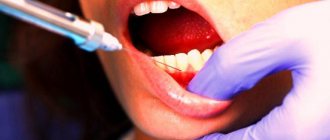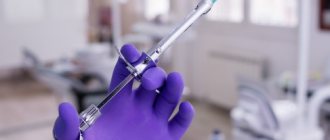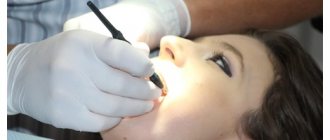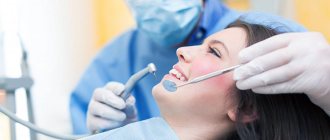During pregnancy, the expectant mother needs to listen more carefully to her body. Oral problems during pregnancy are not uncommon. Teeth and gums react very sensitively to changes occurring in a woman’s body; enamel is more susceptible to destruction and can react sharply to environmental influences. Many women think that dental treatment during pregnancy is impossible. In fact, dental treatment during pregnancy is an important and necessary procedure. After all, the condition of the teeth and the unborn child largely depends on the condition of the mother’s teeth.
Dentist consultation during pregnancy
You will need to consult a dentist more than once during pregnancy. It is better to visit the dentist in the first weeks of pregnancy so that, if there are any inflammatory processes in the oral cavity, they can begin timely treatment. It is very important to visit a dentist in the last trimester of pregnancy. At this time, the child’s skeleton and teeth are forming, so right now it is important to carefully monitor the mother’s health.
The teeth of the expectant mother are exposed to some dangers more than those of other patients. During pregnancy, a woman's appetite increases, nausea occurs, and the composition of saliva changes - its acidity increases. All these are favorable factors for the development of bacteria that have a destructive effect on the surface of the teeth.
Choose a clinic based on reviews, don’t go to the first one you come across. It is not so much the proximity to home that is important, but above all the qualifications of the dentist and experience in dental treatment during pregnancy. In our Dentistry clinic on Shchelkovskaya Diamed you will be provided with a full range of services for dental treatment during pregnancy. Don't worry about anything, just make an appointment by calling 8 (495) 033-00-63 or via the Internet by filling out the online appointment form. We are located a 7-minute walk from the Shchelkovskaya metro station at Shchelkovskoye Shosse, building 44, building 5. We work seven days a week.
How to relieve toothache in pregnant women
If a toothache occurs, a pregnant woman should immediately contact her dentist to find out the causes and take timely treatment measures. But it happens that pain appears at night, during a trip, or under other circumstances when it is not possible to visit a doctor. In this case, the woman should call her dentist, make an appointment and explain her condition. Your doctor will recommend what you can do to relieve your pain before visiting the clinic.
To relieve toothache, a pregnant woman can do the following:
- Rinse your mouth with warm water to remove any remaining food. You need to brush your teeth using a toothbrush and floss (dental floss). If the pain is caused by food getting into the cavity, this may be enough to provide relief.
- Periodically rinse your mouth with warm infusions and decoctions of medicinal plants: calendula, sage, chamomile, eucalyptus. You can also use a saline solution for this purpose (a teaspoon of table salt is dissolved in a glass of warm boiled water). Rinsing does not anesthetize, but has an antiseptic and anti-inflammatory effect, which may reduce pain.
- Take a paracetamol tablet. Panadol, Efferalgan, Paralen, Rapidol are the trade names of paracetamol. It is approved for use at any stage of pregnancy, but the dosage specified in the instructions must not be exceeded. Paracetamol is effective for headaches, moderate dental and joint pain; in acute conditions, it will only reduce the severity of pain.
- Take an ibuprofen tablet (trade names: Nurofen, Ibuprom, MIG 400, Ivalgin Rapid, Imet). The use of the drug is permitted in the 1st and 2nd trimesters of pregnancy, that is, until the 26th week, and is prohibited in the 3rd trimester. Ibuprofen should be taken with caution and only in critical situations, strictly following the dosage regimen.
- Apply Dentol 10% gel to the gums and into the cavity of the diseased tooth. The drug contains the anesthetic benzocaine, its effect after application to the diseased tooth begins within a minute. Dentol can be applied up to 4 times a day.
- During sleep or rest, take a “reclining” position so that the head is elevated: the pain is slightly reduced, as the blood flow to the periodontal tissues decreases.
Prohibited:
- Take combination medications containing ibuprofen or paracetamol. In addition to these substances, combination medications may contain components that are dangerous to the fetus.
- Warm the diseased tooth, as this threatens the spread of purulent inflammation (if any) to the tissues adjacent to the tooth.
- Take any other medications without permission from your dentist or obstetrician-gynecologist. Many drugs have a teratogenic effect - the ability to disrupt the embryonic development of a child.
Dental treatment during pregnancy
Timely dental treatment during pregnancy is a guarantee of peace of mind and the absence of unnecessary emotional worries. Toothache itself is unpleasant and causes some discomfort. And toothache during pregnancy is doubly unpleasant, as it puts extra emotional stress on the pregnant woman and her unborn child.
Pregnant women are susceptible to a number of oral diseases that can develop during pregnancy due to a lack of beneficial microelements and insufficient oral hygiene. These are the diseases.
- Gingivitis is inflammation of the gums. Accompanied by a feeling of itching in the gums, pain when eating, and then bleeding. Treatment of gingivitis must be carried out necessarily, since if the disease is ignored, gingivitis quickly “flows” into periodontitis.
- Periodontitis is a complex inflammation of the tissues surrounding the tooth. Characterized by the formation of gum pockets and loose teeth. Periodontitis can result in tooth loss. Periodontitis is dangerous for the proper development of dental tissues in an unborn child, so treatment of this disease is mandatory.
- Caries. During pregnancy, the expectant mother's teeth are very susceptible to harmful bacteria, so caries develops at a rapid pace. Untreated caries can be passed on to the baby, so you need to see a dentist. In this case, dental treatment during pregnancy is mandatory.
- General weakening of gums and teeth. Due to a lack of vitamins and microelements, pregnant women experience weakening of tooth enamel, acute tooth sensitivity and bleeding gums when exposed to mechanical stress. In such cases, again, it is necessary to consult a dentist to exclude the possibility of developing oral diseases.
How to treat during pregnancy
During pregnancy, it is allowed to have teeth filled and even have them removed. Dental fillings during pregnancy are carried out according to the standard procedure. Modern materials from which fillings are made do not cause any harm to either the mother or the child.
Painful procedures, including tooth extraction, are performed under local anesthesia. The anesthetic drug is chosen very carefully. The dentist must be familiar with the timing of pregnancy and contraindications in order to select the drug that is most suitable for a particular patient.
X-rays should be taken very carefully during pregnancy. If you cannot do without it during dental treatment, then it is best to take the photo in a modern dental clinic with equipment that meets high international standards. To further protect the woman and fetus from X-rays, the chest, pelvis and abdominal area are covered with a special fabric during the X-ray.
Dentists say that it is best to treat teeth during pregnancy in the second trimester. This is a period of relative calm between the critical points of pregnancy in the first trimester (when the fetus is just beginning to develop) and in the third trimester (when the fetus is almost fully formed).
Principles of treatment depending on trimester
Each period of pregnancy has its own characteristics. Therefore, the trimester must be taken into account before starting treatment:
- First. The period is unfavorable for treatment. The fetus is not protected, and its important organs are actively developing. Even approved medications can have a bad effect on a small body, so in the first trimester it is advisable to use only safe products suitable for topical use.
- Second. The period is suitable for dental treatment in hospital and the use of painkillers. The placenta will protect the fetus from substances in the drugs.
- Third. Visiting the dentist is not recommended, as anxiety can trigger premature labor. You can take painkillers.
The second period of pregnancy is suitable for dental treatment in hospital and the use of painkillers
Attention! If you have severe toxicosis, you should avoid visiting the dentist's office.
What dental treatment is prohibited during pregnancy?
When treating teeth during pregnancy, you need to know what is strictly prohibited for expectant mothers.
As a substance for local anesthesia, it is prohibited to use those compositions that contain adrenaline and any of its derivatives. General anesthesia during pregnancy is also strictly prohibited.
Teeth whitening is prohibited. Dental prosthetics cannot be performed. It is prohibited to perform dental treatment using arsenic during pregnancy. Dentists are aware of all the restrictions and your task, in case your pregnancy is short, is to warn the doctor about pregnancy before starting dental treatment.
Pharmacological action of No-Shpa
No-spa relieves cervical spasm during pregnancy
No-Shpa is more effective than Papaverine and other common antispasmodics. This is a drug that has a myotropic effect: it allows you to relieve spasms of the smooth muscles of internal organs, while it does not have a negative effect on the functioning of the central nervous system.
The active ingredient is drotaverine hydrochloride, the drug is available in the form of tablets, as well as ampoules for intramuscular injection. The auxiliary substance in the manufacture of tablets is usually corn starch or lactose, in some cases they provoke allergic reactions.
If you cannot take pills due to individual characteristics, your doctor will prescribe drotaverine by injection. The drug will begin to act within 5 minutes after administration; this is one of the fastest means of providing assistance.
Treatment of caries during pregnancy at Dentistry on Shchelkovskaya
Finally, we will tell you what the main feature of visiting a dentist during pregnancy in our clinic is. The fact is that a pregnant woman is often subject to changes in her emotional state, so our dentists show sensitivity and attention to the patient’s condition, protecting her from any kind of physical pain and emotional stress. The dentists of the clinic on Shchelkovskaya perfectly understand the specific health and emotional background of a pregnant woman, so they do everything in their power to make your visit to the doctor calm and pleasant.
The most important thing that you should not do during pregnancy is to ignore toothache and allow the development of oral diseases. Remember that your baby’s health depends on your vigilance. Therefore, even if you feel slightly unwell, or have periodic aching pains, do not tolerate it, make an appointment with a dentist now! Treatment of caries during pregnancy at any stage of development is possible in our clinic. We work seven days a week, located in the Eastern Administrative District in the Izmailovo district at Shchelkovskoye Highway, building 44, building 5. Near us are Golyanovo, Pervomaiskaya, Partizanskaya, Cherkizovskaya.











